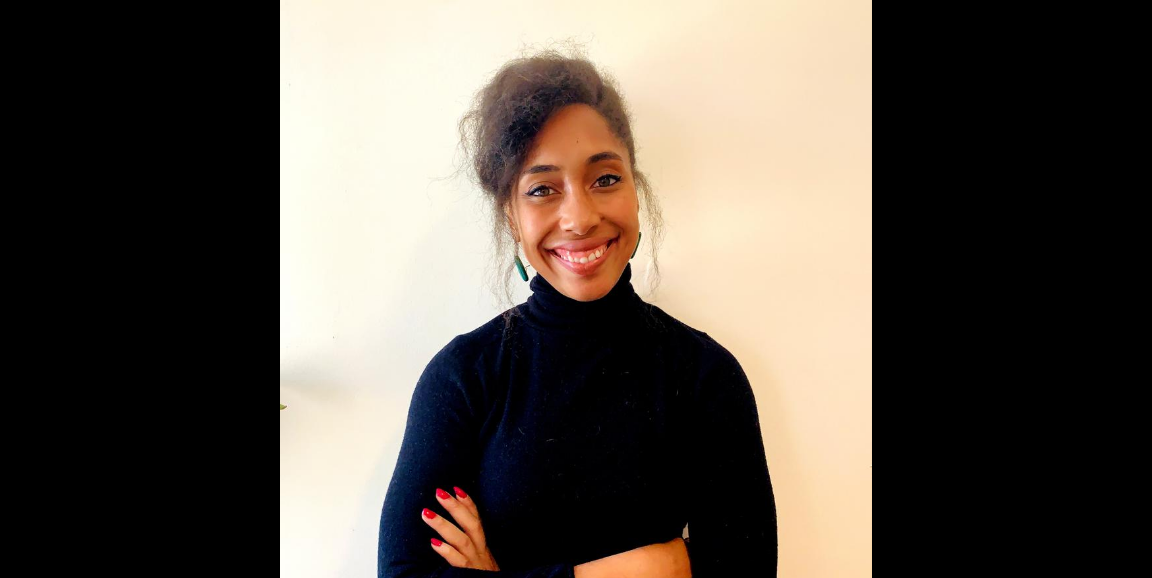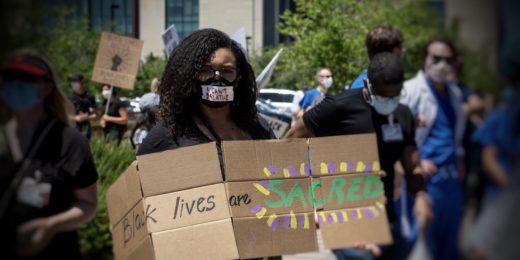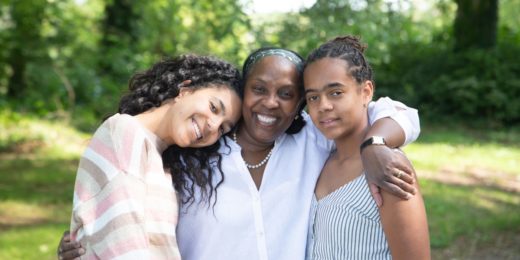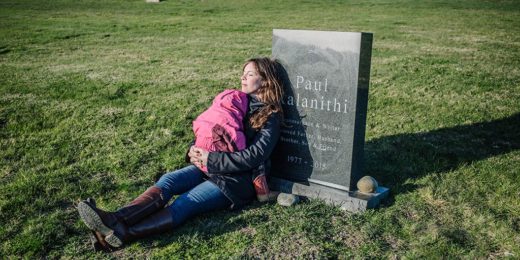Brielle Ferguson, PhD, is used to being the only Black neuroscientist in her immediate circles -- but in recent weeks, she's had the pleasure of meeting many others.
Ferguson, a co-president of the Stanford Black Postdoc Association, has helped to organize a social media project called Black in Neuro Week to amplify contributions from Black scientists to neuroscience, neurology and related fields.
Organized by 22 graduate students, postdocs and professionals from around the world, the project includes five days of virtual events that encourage sharing resources, connecting with others and exploring the challenges people of color face while studying and working in neuroscience fields.
Leading up to the events, we asked Ferguson about her research in the lab of John Huguenard, PhD; the Black in Neuro project; and the importance of building community among Black neuroscientists.
This Q&A is edited for clarity and condensed from her answers.
How did you become interested in science in general and neuroscience in particular?
I grew up in rural Virginia, where I never really had a lot of exposure to careers in science, technology, engineering and math. I didn't even really know what neuroscience was until college, where I took a class my junior year about the neurobiology of learning and memory and fell in love.
Tell us about your research and why your research focus resonates with you?
My broad goals are to better understand circuits in the brain that support cognition and how those circuits go awry in disease states. I'm passionate about this because despite cognitive deficits being a powerful predictor of functional outcome in patients, these impairments often remain untreated across multiple psychiatric and neurological diseases. Currently, I'm studying attention impairments in a mouse model of absence epilepsy.
How and when did the idea of Black in Neuro Week arise?
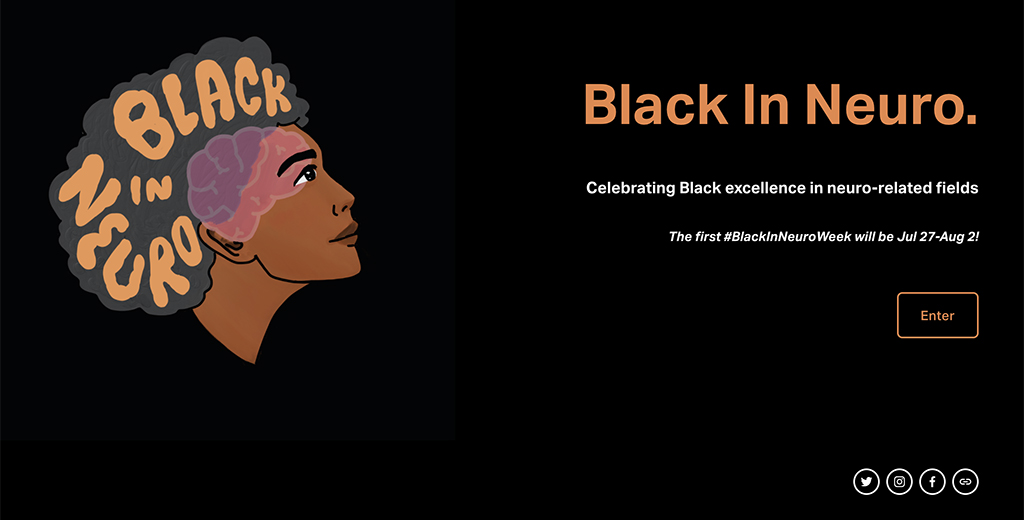
After Amy Cooper called police on birdwatcher Christian Cooper and falsely claimed he had threatened her with violence in New York City's Central Park, a social media campaign called Black Birders Week was born.
The goal was to affirm the right of Black people to thrive in nature without fear. Several projects, such as Black In Astro and Black Botanists week, followed. A few weeks ago, Angeline Dukes, a PhD candidate at the University of California, Irvine, tweeted out a call to start Black In Neuro, and 22 eager co-organizers answered!
What is the goal?
Probably foremost, it is increasing the visibility of Black scholars in neuro. We want to find community, and to show the next generation of scientists, engineers and clinicians in neuro that there are people in their field that look like them and share their experience.
Why is this important?
So many of us struggle to find community in academia. Even if we're among the rare few who have one or two Black peers in their cohort or department, most of us have never had access to Black mentors. Without that, it can be hard to feel like this space is really meant for you.
What have you experienced as a Black researcher neuroscience/neurology?
So often, it's meant being the only one. It means having people minimize or invalidate your accomplishments because they assume your success is due to a diversity quota or through a diversity-related funding mechanism. It's also meant having people think that programs have succeeded in "fixing" diversity because they've accepted more white women, but you're still looking around the room and see no other Black or brown faces.
I'm glad that as a community, we're finally beginning to have the tough conversations around anti-Black racism, and of particular relevance for us, all of the toxic ways that manifests itself in academia.
What has the reception been to the campaign?
We've been truly overwhelmed by the outpouring of support. Prior to Black In Neuro, most of us could count on one hand how many Black neuroscientists we knew, and now we have a searchable database of almost 300 Black scholars that can be used to identify mentors, be invited to give seminars or speak on panels, or interview for faculty positions.
After Black in Neuro Week, what's next for this movement?
Although the following weeks won't offer quite the same level of content, we hope to continue the conversations we've started and to cultivate our community. The list of profiles will be archived and continue to grow as a permanent resource for finding Black In Neuro scholars.
We've also discussed starting a non-profit, so we can continue to offer events and resources, such as travel grants, a mentorship program and potentially a conference further down the road.
People interested in participating in Black in Neuro Week are invited to submit social media posts on Twitter and Instagram using the hashtag #BlackInNeuroWeek. Specific event hashtags are listed on the website.
Photo courtesy of Brielle Ferguson


